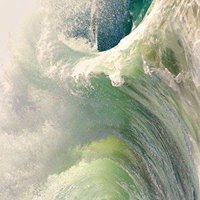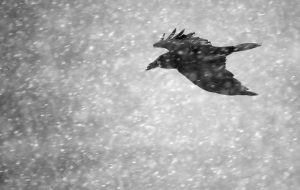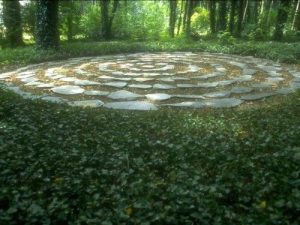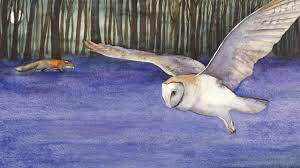 The Yogabliss, Two Rivers/RiverTree Yoga on-line Moving into Meditation classes met this morning. We reflected how we “weather” life experience in our bodies, hearts and minds. We wear that weathering on our faces which we offer to the world. When we truly “receive” a face our hearts open. As part of our natural world, we live through seasons of change subject to the forces of Earth and Sky. In our practice we cultivate compassion for our lives of ten thousand joys and ten thousand sorrows.
The Yogabliss, Two Rivers/RiverTree Yoga on-line Moving into Meditation classes met this morning. We reflected how we “weather” life experience in our bodies, hearts and minds. We wear that weathering on our faces which we offer to the world. When we truly “receive” a face our hearts open. As part of our natural world, we live through seasons of change subject to the forces of Earth and Sky. In our practice we cultivate compassion for our lives of ten thousand joys and ten thousand sorrows.
We drew inspiration from Thomas Merton’s collection of essays Raids on the Unspeakable. Merton, a trappist monk, spent twenty-seven years in Abbey of Gethsemani. He wrote over sixty books and hundreds of poems and articles on topics ranging from monastic spirituality to civil rights, nonviolence, and the nuclear arms race. Today’s reading describes his experience of listening to the talking rain and learning the rhythms of life.
We heard poet Barbara Crooker’s poem, Sometimes, I Am Startled Our of Myself. The poem speaks to hope borne on wings of geese and the cycle of leaves. In her Quartet Journal Interview, Barbara reminds us that “. . . [p]oetry brings us back to our senses, makes us more fully alive, teaches us to pay attention.”
 Finally we heard Kenji Miyazawa’s poem Unbeaten by the Rain. Miyazawa was born on the north-east coast of Japan in 1896, just two months after the Meiji-Sanriku earthquake and tsunami destroyed about 9,000 homes and caused more than 22,000 deaths in the region. His work expressed a keen interest in the relationship between mankind and nature. The literary world he created reflected not only the awe-inspiring beauty of nature, but also its merciless brutality and terrifying force. During his short life, he wrote fiction, poetry, and children’s stories. He had an ecological vision well ahead of his time. Drawing on his training as a scientist and a practitioner of Buddhism, Miyazawa developed a vision of interdependence among all forms of life at all times. You can see a whimsical Anime recreation of his life story as told by cats in the film, Spring and Chaos: The Life Story of Kenji Miyazawa.
Finally we heard Kenji Miyazawa’s poem Unbeaten by the Rain. Miyazawa was born on the north-east coast of Japan in 1896, just two months after the Meiji-Sanriku earthquake and tsunami destroyed about 9,000 homes and caused more than 22,000 deaths in the region. His work expressed a keen interest in the relationship between mankind and nature. The literary world he created reflected not only the awe-inspiring beauty of nature, but also its merciless brutality and terrifying force. During his short life, he wrote fiction, poetry, and children’s stories. He had an ecological vision well ahead of his time. Drawing on his training as a scientist and a practitioner of Buddhism, Miyazawa developed a vision of interdependence among all forms of life at all times. You can see a whimsical Anime recreation of his life story as told by cats in the film, Spring and Chaos: The Life Story of Kenji Miyazawa.
 Relaxed Reflection
Relaxed Reflection
In meditation we come back to this precious breath, this body, this heart, this mind. We focus our kind awareness on the ever changing stream of life. Like the weather, we experience rain, snow, wind and summer heat. We can feel these forces on our skin, hear the polyphonic sounds of Earth and Sky. Clouds, rain, snow and ice all are realized Water. We feel nature’s rhythms as our bodies express sensation, hearts release emotion and minds create thought. In practice we become intimate with these life expressions. Each of us finds our way in realizing our lives. We can move close in with concentration. We can step back and study the landscape of an emotion; observe how it changes like all natural phenomena.
In sitting meditation inside we experience our own weathering. We cultivate intimacy with the breath, with the body. They are always with us and we can feel their sensations of ebb and flow. Sometimes the awareness of someone else’s breathing or sound can bring us back. Our friends can help remind us to come back. We support one another in Sati, the Pali word for mindfulness, the ability to remember, to come back to that which leads to freedom. We offer each other our faces. Our faces bear the weathering we’ve lived. Truly taking in a face opens our hearts.
In walking meditation outside we are surrounded by great spaces of weather: the boundless sky, the moving clouds. In listening to the talking rain we realize our wondrous inter-being. The monastic philosopher Thomas Merton describes this experience:
 What a thing it is to sit absolutely alone, in the forest, at night, cherished by this wonderful, unintelligible, perfectly innocent speech, the most comforting speech in the world, the talk that rain makes by itself all over the ridges, and the talk of the watercourses everywhere in the hollows! Nobody started it, nobody is going to stop it. It will talk as long as it wants this rain. As long as it talks I am going to listen.
What a thing it is to sit absolutely alone, in the forest, at night, cherished by this wonderful, unintelligible, perfectly innocent speech, the most comforting speech in the world, the talk that rain makes by itself all over the ridges, and the talk of the watercourses everywhere in the hollows! Nobody started it, nobody is going to stop it. It will talk as long as it wants this rain. As long as it talks I am going to listen.
. . . And I listen, because it reminds me again and again that the whole world runs by rhythms I have not yet learned t. . .
Inside, outside, alone and together we can relate intimately with life. We can feel our bodies and stay present with life’s changing rhythms. As poet Barbara Crooker recalls:
Sometimes, I am startled out of myself.
like this morning, when the wild geese came squawking,
flapping their rusty hinges, and something about their trek
across the sky made me think about my life, the places
of brokenness, the places of sorrow, the places where grief
has strung me out to dry. And then the geese come calling,
the leader falling back when tired, another taking her place.
 Hope is borne on wings. Look at the trees. They turn to gold
Hope is borne on wings. Look at the trees. They turn to gold
for a brief while, then lose it all each November.
Through the cold months, they stand, take the worst
weather has to offer. And still, they put out shy green leaves
come April, come May. The geese glide over the cornfields,
land on the pond with its sedges and reeds.
You do not have to be wise. Even a goose knows how to find
shelter, where the corn still lies in the stubble and dried stalks.
All we do is pass through here, the best way we can.
They stitch up the sky, and it is whole again.
Oh the richness that occurs when we stop to let our full attention rest on where we are. “…the whole world runs by rhythms [we] have not yet learned to recognize…”
 When we meditate we are invited to sit with the full range of human experience. The Taoists described this as the ten thousand joys and the ten thousand sorrows. Joy turns to sorrow. Sorrow turns to joy. Sometimes we get lost in one or the other. When we aren’t paying attention our conditioning takes over in grasping pleasant, avoiding unpleasant. And yet so much life is lived in between. This is what the mind does, we become spellbound. Our awareness practice seems to break the spell. When we enter the stream we have direct experience. We are so much more than who we think we are. Life is so much more than what we think . . .
When we meditate we are invited to sit with the full range of human experience. The Taoists described this as the ten thousand joys and the ten thousand sorrows. Joy turns to sorrow. Sorrow turns to joy. Sometimes we get lost in one or the other. When we aren’t paying attention our conditioning takes over in grasping pleasant, avoiding unpleasant. And yet so much life is lived in between. This is what the mind does, we become spellbound. Our awareness practice seems to break the spell. When we enter the stream we have direct experience. We are so much more than who we think we are. Life is so much more than what we think . . .
How do we enter the stream of life? How do we give and receive our faces? How do we listen to the talking rain? Meditation instructor and author Larry Yang suggests that we bring our hearts to what we are minding. “The mind-heart are one.” He says:
. . . as you allow your awareness to touch your experience without pushing it away, without wanting more of it – that touch is kindness itself. That touch is the non-judgment . . . This paying attention is a profound act of love. It’s a profound act of love in . . . in allowing you, in allowing me to be who we are in this moment. . . .
 Right now, we can reflect on how we pay attention with love. How are we moved when we truly receive the face of an other? Do we see the beautiful weathering of life lived? Who, what or where do we lovingly attend? How have we been lovingly attended? Our hearts and minds need to give and receive attention. Paying attention, being aware of someone else is love. The world needs our attention.
Right now, we can reflect on how we pay attention with love. How are we moved when we truly receive the face of an other? Do we see the beautiful weathering of life lived? Who, what or where do we lovingly attend? How have we been lovingly attended? Our hearts and minds need to give and receive attention. Paying attention, being aware of someone else is love. The world needs our attention.
When something, someone, touches our hearts – we are called to not turn away. When we witness suffering – we don’t turn away. We resist the urge to distraction and bring our caring hearts and minds tenderly to these ten thousand sorrows. It is in our ability to really be with the moment that the awareness of what to do next arises in the 10,000 ways of our lives. Here is Kenji Miyazawa’s poem Unbeaten by the Rain:
Unbeaten by the rain
Unbeaten by the wind
Bested by neither snow nor summer heat
Strong of body
Free of desire
Never angry
Always smiling quietly
Dining daily on four cups of brown rice
Some miso and a few vegetables
Observing all things
With dispassion
But remembering well
 Living in a small, thatched-roof house
Living in a small, thatched-roof house
In the meadow beneath a canopy of pines
Going east to nurse the sick child
Going west to bear sheaves of rice for the weary mother
Going south to tell the dying man there is no cause for fear
Going north to tell those who fight to put aside their trifles
Shedding tears in time of drought
Wandering at a loss during the cold summer
Called useless by all
Neither praised
Nor a bother
Such is the person
I wish to be
